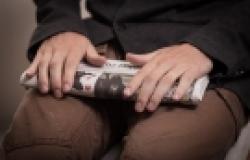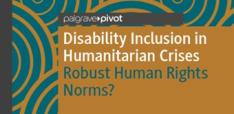How can we Create an Ethical Framework for Journalism in an Age of Terror?

The issue, as always, is where to draw the line between public safety and public knowledge. A new book argues that it’s the job of journalists and intelligence agencies to negotiate a responsible middle-ground.
How should the media report on an organisation that is, by its nature, secret? This is the question at the heart of John Lloyd’s compelling new book Journalism in an Age of Terror. Lloyd is a contributing editor to the Financial Times as well as director of journalism at the Reuters Institute for the Study of Journalism. His book is a response to the increasing scope and power of the intelligence services. Focusing on services in the US, UK, and France, Lloyd asks how journalism ought to respond to that power.
His concern is that, just as intelligence services have expanded their purview, journalism is less able to respond. Lloyd also argues that journalists often fail to understand the internal culture of intelligence agencies. In an age of terror, it’s clear the media can’t afford to fall behind. But there are also real questions about the ethics of reporting classified documents when lives are at stake.
An unavoidable part of this is addressing the culture of leaks. Leaking has provided the most obvious and sensational reportage on the intelligence community over the past decade. Lloyd casts a critical, if measured, eye over the issue. Leaking, he writes, has always been a part of journalism. The change is the way that it is validated by journalism and, more broadly, liberal opinion. Lloyd’s critique comes in two parts. The first he links with digital journalism and what he understands as its often irresponsible use of leaked information.
He quotes Assange's vision of a 'positive trajectory' for the future: "the inability of neo-totalitarian states to arise in practice because of the free movement of information, the ability for people to speak to each other privately and conspire against such tendencies, and the ability of micro-capital to move without control away from such places which are inhospitable to human beings." Lloyd doubts whether this kind of open digital community is, in and of itself, a moral and political good. In a world where violence is commonplace, he suggests, some state secrets are necessary.
The second part of his critique centres on the role of state authority. Glen Greenwald comes in for particular criticism. Greenwald, Lloyd argues, sees the state as having forfeited its moral authority through mass data collection. In other words, by spying on its own citizens the government has lost any claim to democratic representation. The logical outcome of this position is that that journalists must not collude with government. Editors, Lloyd points out, sometimes agree to kill stories that could undermine intelligence operations. If the government is immoral, then surely the editors are at fault. But for Lloyd, this is too easy. He argues that the ‘publish or be damned’ approach disregards the often violent world that we live in.
It’s an open question as to whether journalists should risk lives for a theoretical political good. But it’s also uncomfortable to imagine government departments interfering with the press. For many people, not just journalists, this is unconscionable. Isn’t the purpose of journalism to expose stories, no matter what? Greenwald could also easily point to the other abuses committed by intelligence services. A government that tortures, it could very well be argued, has abandoned its mandate for moral rule.
However, Lloyd is no apologist for intelligence agencies. He dwells at length on the services’ catalogue of failures, from bureaucratic inefficiency to torture and extraordinary rendition. Journalists, he writes, are bound by the ethics of their profession to uncover these abuses. In this capacity, he finds common ground with more radical defenders of the free press. However, the value of Lloyd’s critique is its focus on responsibility rather than censorship. Not all freedom of speech issues centre around legality. Often as not, what’s at stake is what should rather than what can be said.
Even for those who disagree with Lloyd’s assessment of recent leaks, there is still value in his approach. He asks pointed questions that are all too often pushed aside. One of the most obvious is: do we derive value from our intelligence services? If the answer is yes, then state secrets are permissible and ought to be defended. The difficulty lies in determining whether the content of those secrets is morally sound.
As Lloyd himself points out, intelligence services have often failed in their duty to self-police. This begs the question of how to find the right measure of transparency. There is clearly a very real need for the intelligence services to be monitored. Assuming that state secrets are necessary, however, how can that be possible? There is strong resistance, particularly among British intelligence services, in sharing information with the press. Lloyd argues that building long term relationships between journalists and intelligence agencies is one way forward. Journalists need to understand the services they report upon. In turn, the services need to recognise that public trust is built on accountability.
Lloyd points out that the nature of public trust is also complex. It’s certainly true that many people have concerns about the existence of government spying and state secrets. However, intelligence services have been remarkably undamaged by bad press. Despite disturbing revelations about the NSA and GCHQ, opinion polls have largely been favourable to the services. Lloyd makes the excellent point that public perception of the services affects how they are allowed to operate. Much of the book is devoted to a cultural history of the intelligence agencies, from Bond to John Le Carre. The positive representations of the services in films and books have lent them a measure of resilience in the court of public opinion. One that often may not be deserved.
This is yet another reason why good reporting is so necessary. What’s needed is a measured account of the services, including both their successes and failures. The issue, as always, is where to draw the line between public safety and public knowledge. Lloyd’s conclusion is that there’s an unavoidable tension between secrecy and accountability; it’s the job of journalists and intelligence agencies to negotiate a responsible middle-ground. By staking a claim about where to begin, John Lloyd fine-tunes a debate that has been neglected for too long.
Dylan Brethour is a freelance journalist who writes about politics and culture. She's a regular contributor at Byline.com and Londnr Magazine. Find her on Twitter at @dylanbrethour. This post first appeared on OpenDemocracy.
Photo credit: <a href="http://foter.com/re/1c1793">Foter.com</a>


